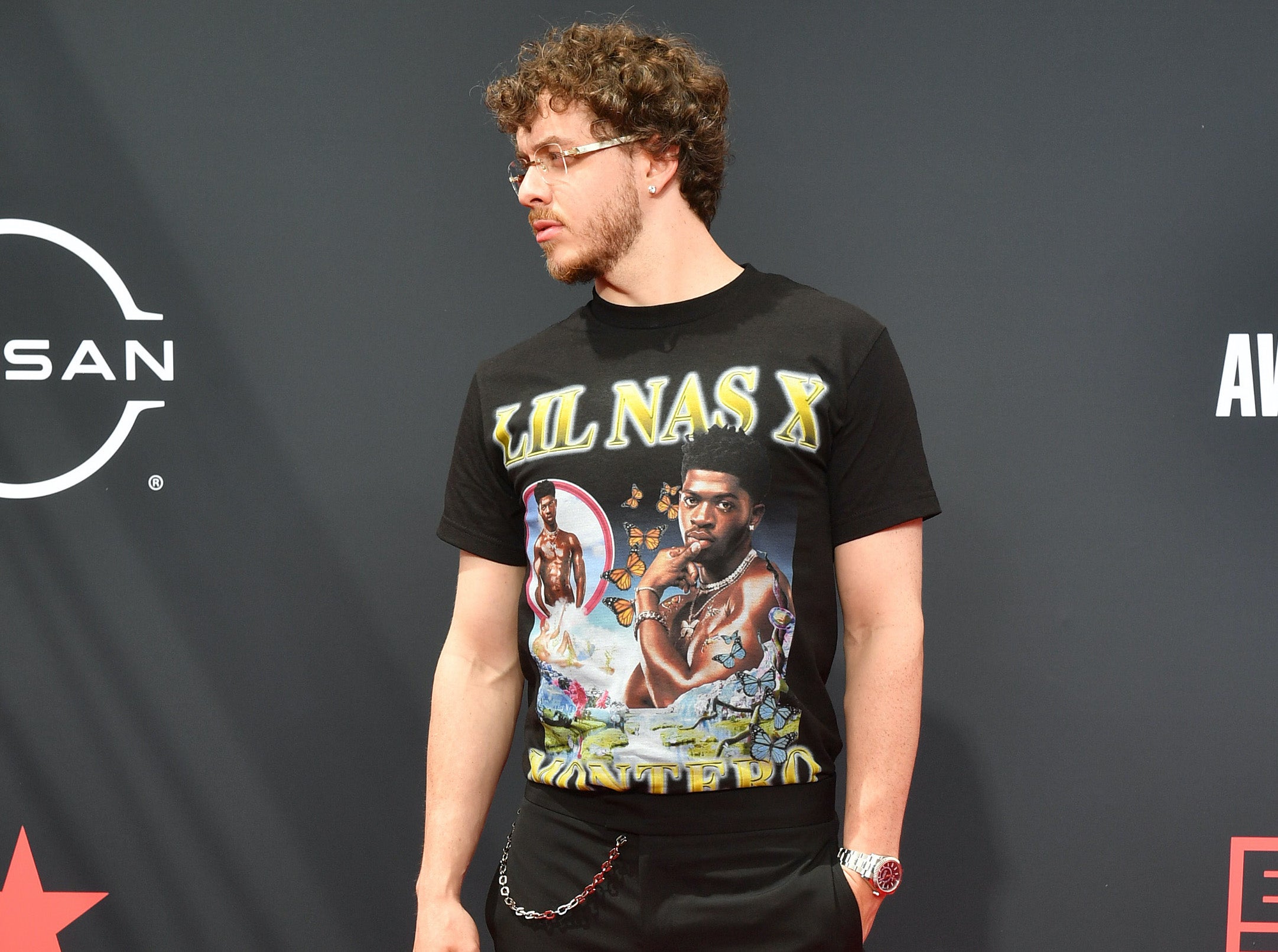
Popular rapper Jack Harlow is trending after wearing a bonnet when he attended a Louisville City FC soccer game over the weekend in Kentucky. After images of Harlow posing with some fans wearing a black t-shirt, reflective shades, and the matching bonnet in question surfaced, they went viral on social media.
Criticism against Harlow quickly ensued, and the 25-year-old has since been flooded with condemnation over his decision to wear a bonnet as headgear. Many cite the fact that Black women wearing a bonnet in public is a provocative topic, even amongst the Black community.
Is Harlow guilty of cultural appropriation? While Harlow has not yet commented on the backlash he’s received, “the mixed feedback has been swift and loud as fans react to the sensitive, controversial topic.”
One user tweeted, “If I see a bunch of white kids walking around with bonnets on Jack Harlow will have to answer for his crimes.”
“They’re mad because if a Black woman does this, she’s called ghetto for it, but Jack, a white man, is getting none of that same smoke,” reads another tweet.
Another user sarcastically chimed in with, “Why y’all not calling Jack Harlow ‘ghetto’ and ‘unclassy’ for wearing that bonnet?”
Indeed, bonnets as a hair covering “hold deep historical and cultural significance, as well as a stigma which has continued to this day particularly around wearing them in public.”
Hatred against the bonnet can be traced back to slavery. Star Donaldson, host of Byrdie’s Crowned shorts, explains that “historically, the styling of a bonnet used to reflect ‘wealth, ethnicity, martial status, emotional state and other facets of identity.’” This all changed during slavery, when bonnets were “‘weaponized’ against Black people. They were used to visibly distinguish Black women as lesser or even subhuman,” said Donaldson.
Just two years ago, comedian Mo’Nique Hicks posted a personal PSA on her Instagram, asking “‘young Queens’ (read: Black women and femmes) to think twice before deciding to wear sleep and loungewear in public.’”
In the video, Mo’Nique recalled a recent trip, where she saw a large number of Black women sporting head scarves and bonnets as they waited in line to boar at the Atlanta airport. She said it was “too many to tap,” and commented because it “was so offensive to her.”
It’s still up for debate whether Harlow was in the wrong or not, but as Teen Vogue states, “we can’t forget that curly hair is not exclusive to one community. As long as he is not using it as a means of achieving the ‘Black aesthetic,’ Harlow has as much right to stock up on bonnets from the beauty supply as anyone else. The side eyes are purely for the free pass he gets for wearing an item that Black women routinely get judged for.”